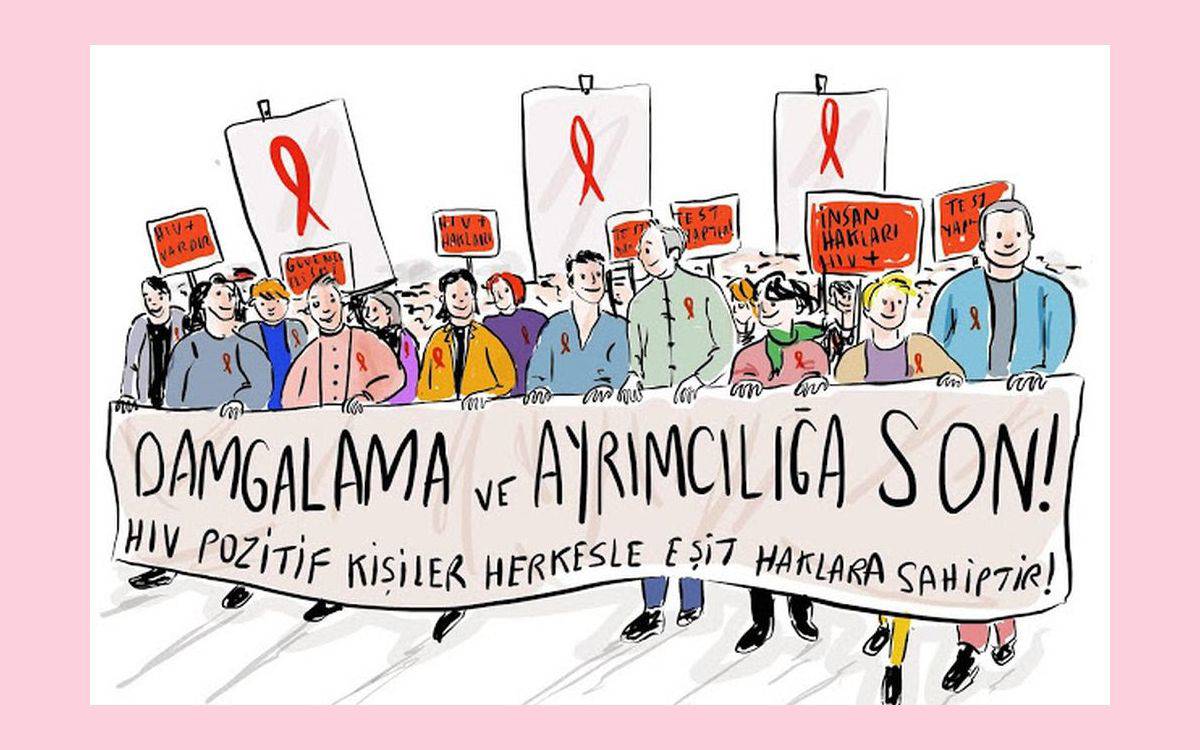Why are HIV cases increasing in Turkey?


Despite increased precautions and medications worldwide, HIV, which causes AIDS, has started to increase again in Turkey.
Currently, there is no permanent cure for HIV. However, there are many medications called Antiretroviral Therapy (ART) that can control HIV infection, prevent potential problems associated with HIV, and prevent AIDS.
According to the Ministry of Health data, there have been 41,732 cases reported as of November 8, 2023, where confirmation tests have determined a positive HIV status since 1985.
Cases are 81.5% male and 18.5% female. The cases are most commonly seen in the age groups of 25-29 and 30-34. The cities with the highest prevalence of diagnosed HIV cases are İstanbul, Ankara, and İzmir.
We spoke with Çiğdem Şimşek, founding member of the Positive Living Association, about the increase in HIV cases.
What is the level of recent HIV increase in Turkey? What do you attribute this increase to?
According to the data from the Ministry of Health in Turkey, there are currently 41,732 cases reported with a positive confirmation test from 1985 until November 8, 2023.
Especially since 2010, the upward trend in HIV has seen a steep increase in Turkey. From the first case detected in 1985 until 2010, approximately 4,000 people were diagnosed, whereas after 2010, approximately the same number of people were diagnosed in just one year.
According to official figures, around 60% of the total diagnosed cases in Turkey since the first appearance of HIV have occurred in the last 5 years. With the emergence of the Covid-19 pandemic, this trend has continued to rise.
The absence of age-appropriate sexual and reproductive health education in formal education systems leads to inadequate knowledge about both prevention methods and sexually transmitted infections among young people.
As a result, we see a lack of development in behavior change and individuals failing to protect themselves. With the easy accessibility of sexuality, especially with digitalization, it spreads more rapidly among young people. Additionally, the absence of a habit of getting tested, and thus not receiving a diagnosis and starting treatment, can contribute to the occurrence of new infections.
How is access to HIV testing provided, and where are these tests conducted?
HIV testing can be conducted at all state and university hospitals, family health centers, health clinics, and private laboratories.
Additionally, in İstanbul, İzmir, Ankara, Bursa, Mersin, and Diyarbakir, it is possible to get an anonymous and free HIV test at the Voluntary Counseling and Testing Centers.
How much improvement is possible with medications?
Currently, there is no treatment available that can completely eradicate HIV from the body or provide a cure. However, it is possible to suppress HIV with antiretroviral therapies used worldwide and in our country. HIV-positive individuals receiving treatment can maintain natural life spans like everyone else; they can work and get married.
While previously conception could occur through sperm washing, now it is possible to conceive naturally without the need for any additional methods. HIV-positive individuals can give birth vaginally without the need for a cesarean section, unless medically necessary, and deliver an uninfected baby. Additionally, under medical supervision, they can breastfeed their babies.
What is the situation regarding access to HIV treatment in Turkey?
Any Turkish citizen with social security coverage can access diagnosis, treatment, and follow-up services without any issues.
The latest drugs used in treatments are available and utilized in our country. Turkey is one of the best examples in terms of using the newest drugs. However, individuals who are not registered and do not have any health insurance in our country do not have access to treatment. This negatively affects both the individual and indirectly impacts public health.
What is the state of HIV awareness in Turkey? What can be done to increase awareness?
To answer this question, I'd like to provide some research data to highlight how low awareness actually is. For instance, we can refer to the results of the 'HIV-AIDS Awareness Survey' conducted by Başkent University and Hacettepe HIV/AIDS Research Center (HATAM) in 2017: while 77% of the population in our country lacks information about HIV, 75% are not aware that people living with HIV can lead a normal life.
The low awareness of HIV can be attributed to several factors, including the lack of accurate and up-to-date information about HIV, unfamiliarity with prevention methods, conservative perspectives, the inability to discuss it openly due to taboos and prejudices, and the failure to develop effective prevention strategies. To stop the spread of HIV, increasing awareness is crucial. This requires governments to take the lead and develop specific policies.
Especially in school curricula, it is essential to include accurate information about HIV and AIDS, provide sexual health education suitable for all ages, and ensure that the media reports news based on current information free from hate speech.
There is also a need for legal regulations to protect the rights of HIV-positive individuals, prevent discrimination, and address hate crimes. The rights of individuals living with HIV who are discriminated against and marginalized, whether in schools, workplaces, or social environments, can only be protected through legislation.
(IB/EMK/PE)



